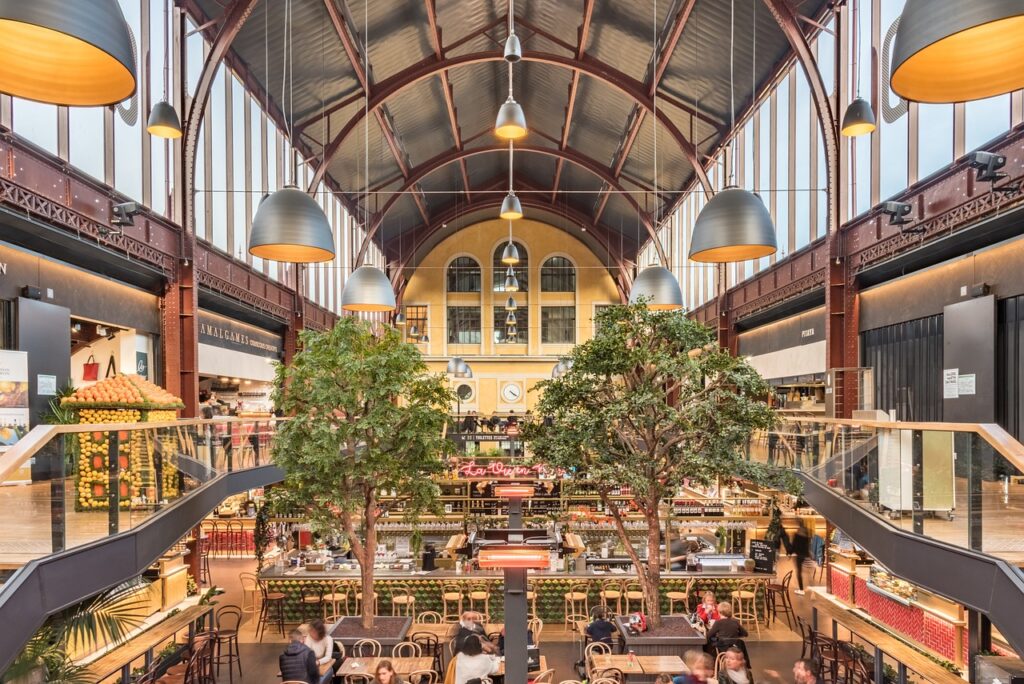When negotiating a shop lease, tenants face a range of hidden risks — from unclear service charges and poorly structured turnover rents to restrictive operating terms and ambiguous insurance costs. These issues, if not properly managed, can turn a profitable business into a financial drain.
A shop lease needs to do more than grant you space — it must support your business, not obstruct it. That requires advice from a commercial property solicitor with both breadth and depth of experience. A recent legal ruling has strengthened tenant protections — but only if your lease is drafted to fall within its scope.
Traps in Shop Leases
I have discussed in detail the risks of assuming the simplicity of office leases here, and indeed they are also applicable to shop leases. However, shop leases present additional risks beyond those typically found in offices or industrial premises. Some of these arise because high street properties are often owned by individuals or families, not institutions. This makes the relationship — and the risks — more personal.
How personally the landlord wants to be involved in controlling the business may affect your ability to adapt. Any business must be able to adapt to changing markets and opportunities. However, an unfavourable shop lease may restrict that in a number of ways, from preventing advertising boards to restricting what is inside the shop but visible from outside the premises, or even restricting what you can sell in the shop. This is especially common in shopping centres but is also common on the high street if the Landlord owns a number of other retail units in the same area. A different but similarly impactful topic, turnover rents may include a percentage of internet sales and even a percentage of sales made at any other (current or future) branches of your business!
Here are some other potential traps in shop leases that a qualified and experienced solicitor can help you navigate and negotiate favourably:
1. The Location
The location is one of the most important elements for a shop. This can make it very personal for the tenant, but it can also be much more personal for the landlord. On the high street, the landlord is much more likely to be an individual or a family, and may even live in the same building, making negotiations more emotionally charged and less commercially predictable. Tenants must be ready to negotiate with landlords who want control over things no institutional owner would attempt — from shop opening hours to which pets can enter. This makes it even more important to be able to see problems and solve them with minimal fuss and without delay.

2. Due Diligence
Due diligence is critical. I have illustrated that before here, and it is even more important for shops.
For example:
a. Service Charges. The tenant may be renting a shop in a building that has no professional management, so the tenant, and even the owner, has no idea what the service charge will be next year. In this scenario, no one really knows the state of the roof until it actually starts leaking. An experienced commercial property solicitor, the kind who has been in-house and reads the service charge financial statements out of interest (!) can spot this for you.
I recently encountered this exact issue and the Landlord proposed to solve it by having a service charge cap that was more than the annual rent, while simultaneously saying they were trying hard to support a small local business! We eventually agreed a service charge cap less than a tenth of their initial proposal. This kind of thing tends not to happen with any other types of commercial property. The issue here is that it is all more personal.
b. Rights of way. Only last month, I discovered a ransom strip along the front of a row of shops. This had not been advertised and the landlord claimed not to know about it! It meant that the shop had no legal access to the public highway and customers had no legal access into the shop. You may be surprised how quickly this can be solved – but only before the shop lease is signed and before the owner of the ransom strip starts to cause a problem. If the problem starts after the signature of an unfavourable lease, the costs and effects on your shop business are completely different (and you would still have to pay the rent).
c. Environmental Risks. You may think these risks do not apply to central London, but that is not the case. Leicester Square and the Strand are both recorded as at moderate-high risk from ground instability and some retail parts of Fulham get floods in the basement on a very regular basis. However, although the Tenant pays for the insurance, if the Landlord omits this risk from the building’s insurance policy, the Tenant may have to pay for any physical damage caused by that risk (unless the shop lease has been properly amended to protect the tenant).
3. The lease term
A successful shop business builds up a considerable goodwill into the commercial property, so moving to a new location can be very painful. The tenant therefore has a strong interest in being able to remain at the premises if they want to. On the other hand, the Landlord may be reluctant to grant security of tenure rights as it loses control of its own commercial property. When finding a solution to this, both parties need to be mindful of each other’s underlying commercial drivers including that:
a. A tenant needs to ensure the shop lease is robust enough at least to get it a decent Return on Investment before it can be forced to leave and to have time to find alternative premises.
b. The owner’s agent often suggests to the Landlord that they should convert the building to be entirely residential.

4. Opening Hours
If the owner lives in the same building or nearby, they may also seek control over the opening hours of the shop. I have seen this attempted many times and always advise tenants to reject it. It means the Landlord can halve the opening hours and keep the same rent, which could lead to the closure of the tenant’s business. The Landlord does not have to be reasonable and there are no regulations about this. In shop leases, there are no consumer protections. While the common-sense assumption may be that no Landlord would do such a thing, experience shows that this happens surprisingly often. Again, the issue here is that it is all more personal.
5. Animals
For some reason there is a great tendency for Landlord to attempt to stop pets from entering the shop premises. You may wonder why, in a high street shop, that should be up to the Landlord rather than the business-owner or the customer. However, this can get personal if the owner lives in the same building. On the other hand, this is where the shop lease can affect disability discrimination and employment laws! Shop leases are a crucial intersection that controls all kinds of other (non-property) laws which your business needs to risk-manage.
6. Insurance: A Hidden Profit Centre
One of the most common traps we see is insurance overpricing. The process usually unfolds like this:
- You find an insurance quote for £1,500.
- The landlord presents their insurer’s invoice: £5,000.
- Why? It’s often because the landlord is insuring your premises together with others that carry higher risks — and because they’re receiving inflated commissions from the insurer, at your expense.
There is nothing illegal about this — unless your lease restricts the landlord’s right to profit from insurance arrangements. A properly negotiated clause can protect you.

7. Appearance
The landlord may seek to restrict changes of colour, design, equipment, layout or logo. The Shop can be your strongest marketing tool so the ability to change it is vital. I have gone into more detail on that here.
A shop lease should enable the Tenant’s business strategy to change over time. This is true for start-ups as well as more established businesses. Changes in business strategies, periodicity of rent payments, further space available in the building and even the facilitation of networking among tenants are all issues that the shop lease can establish the correct framework for. I have written more about this here.
Conclusion: your lease should work for you
Shop leases are legal documents, but their impact is commercial — and personal. They affect every part of your business: your customers, your staff, your brand, your flexibility to grow, and your bottom line.
Whether you’re setting up your first shop or expanding across multiple sites, the risks are real — but avoidable. With experienced legal advice, many of these problems can be spotted and solved before they ever affect your business.
Contact James Williamson if you’d like to discuss how to make your shop lease work better for you.





